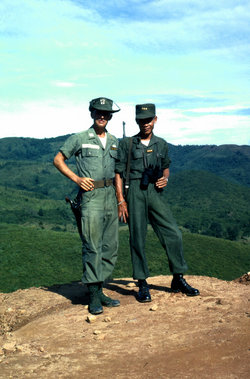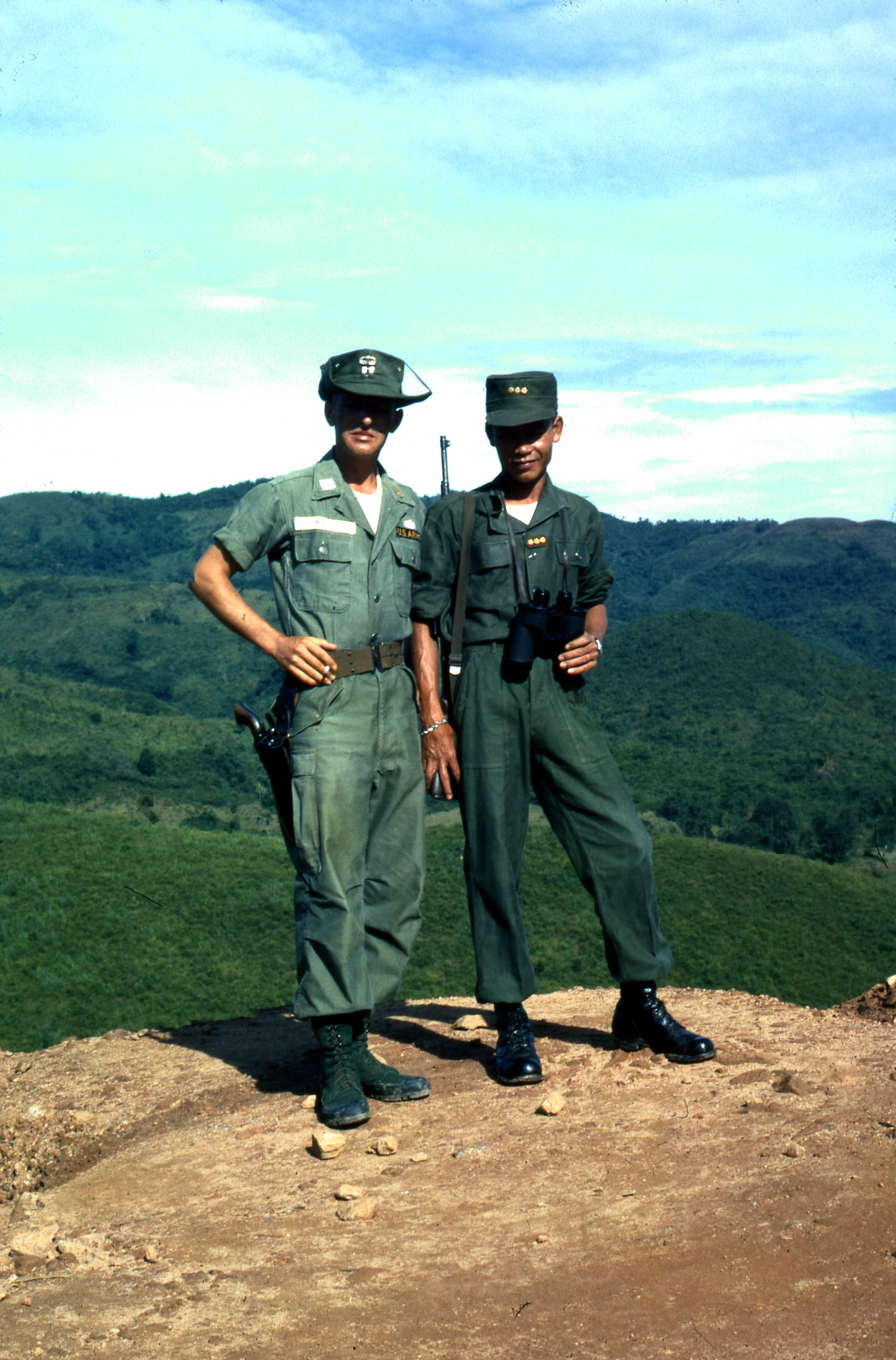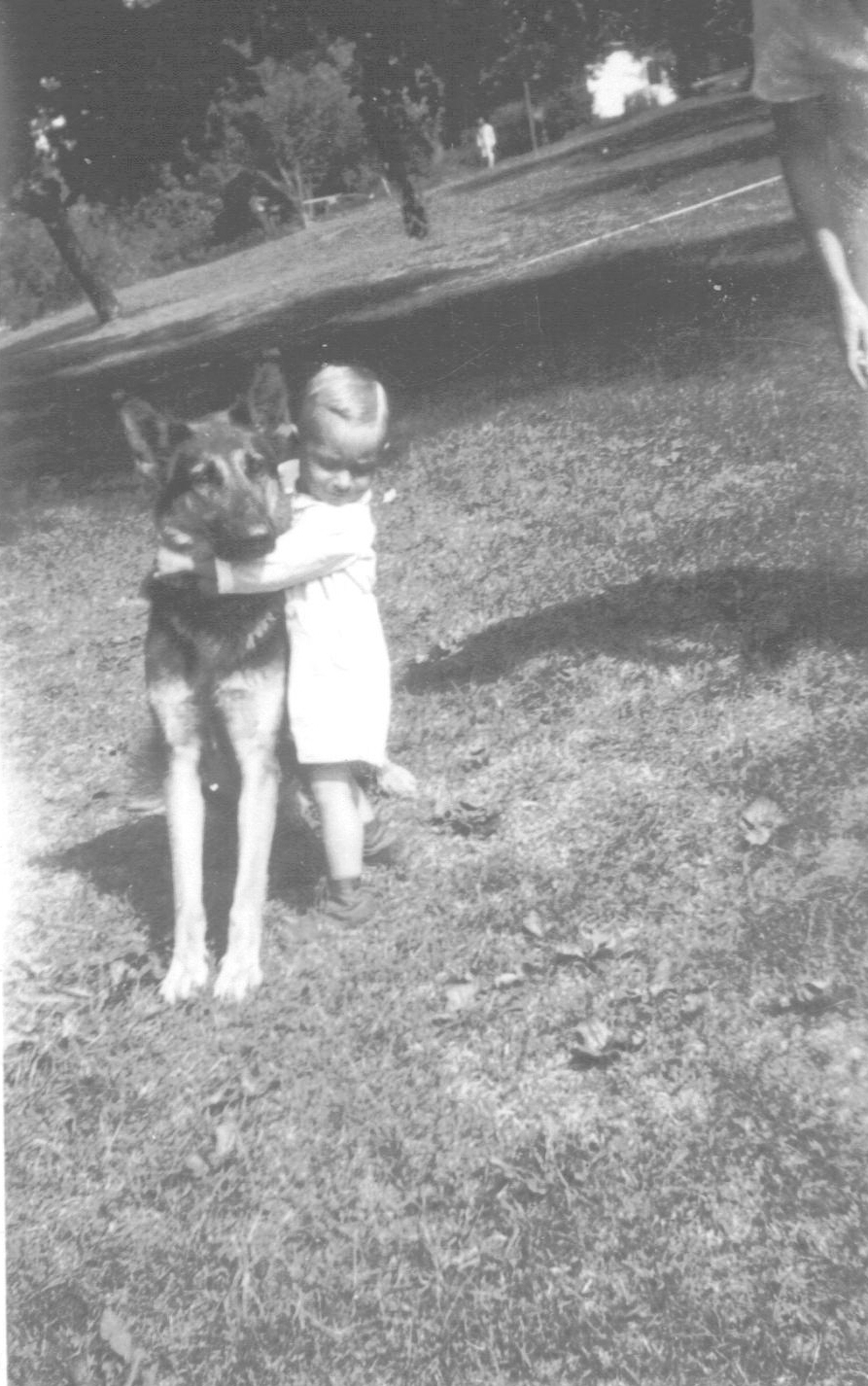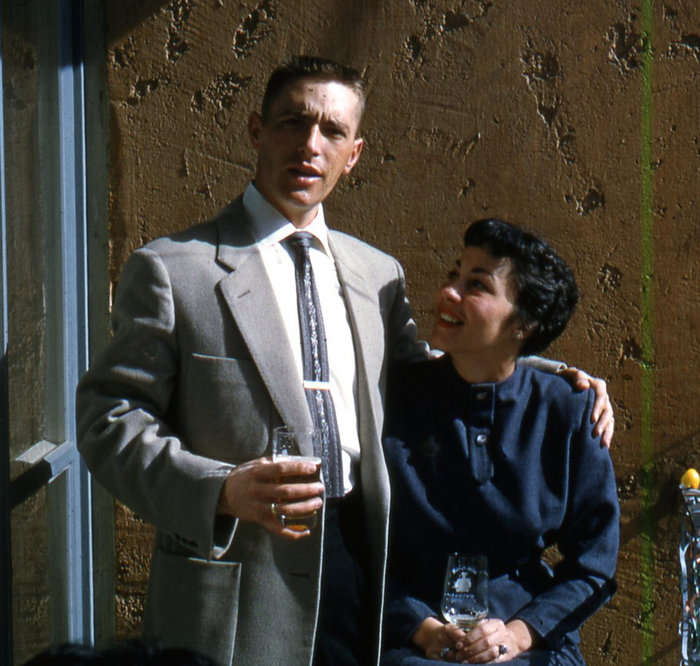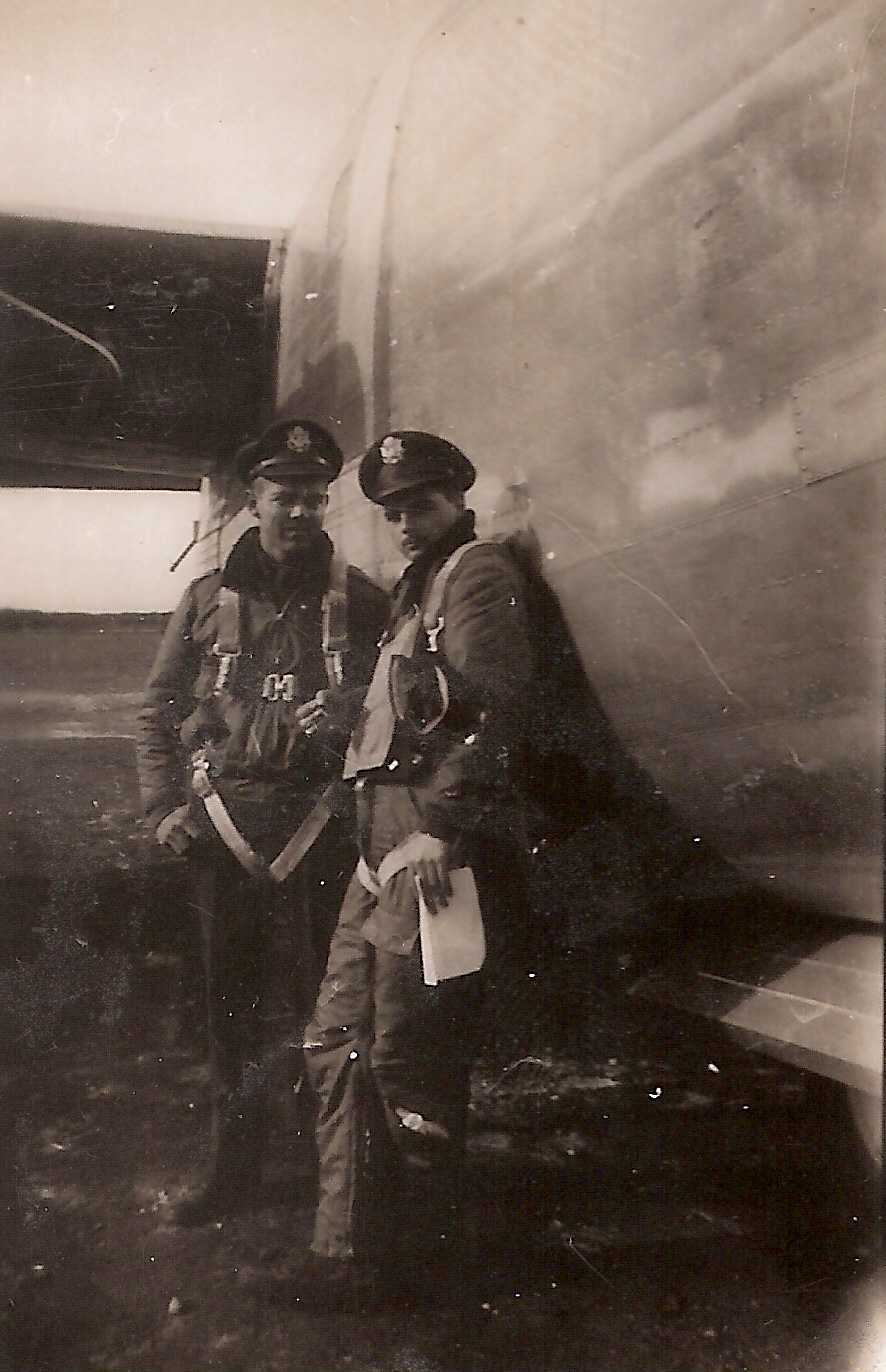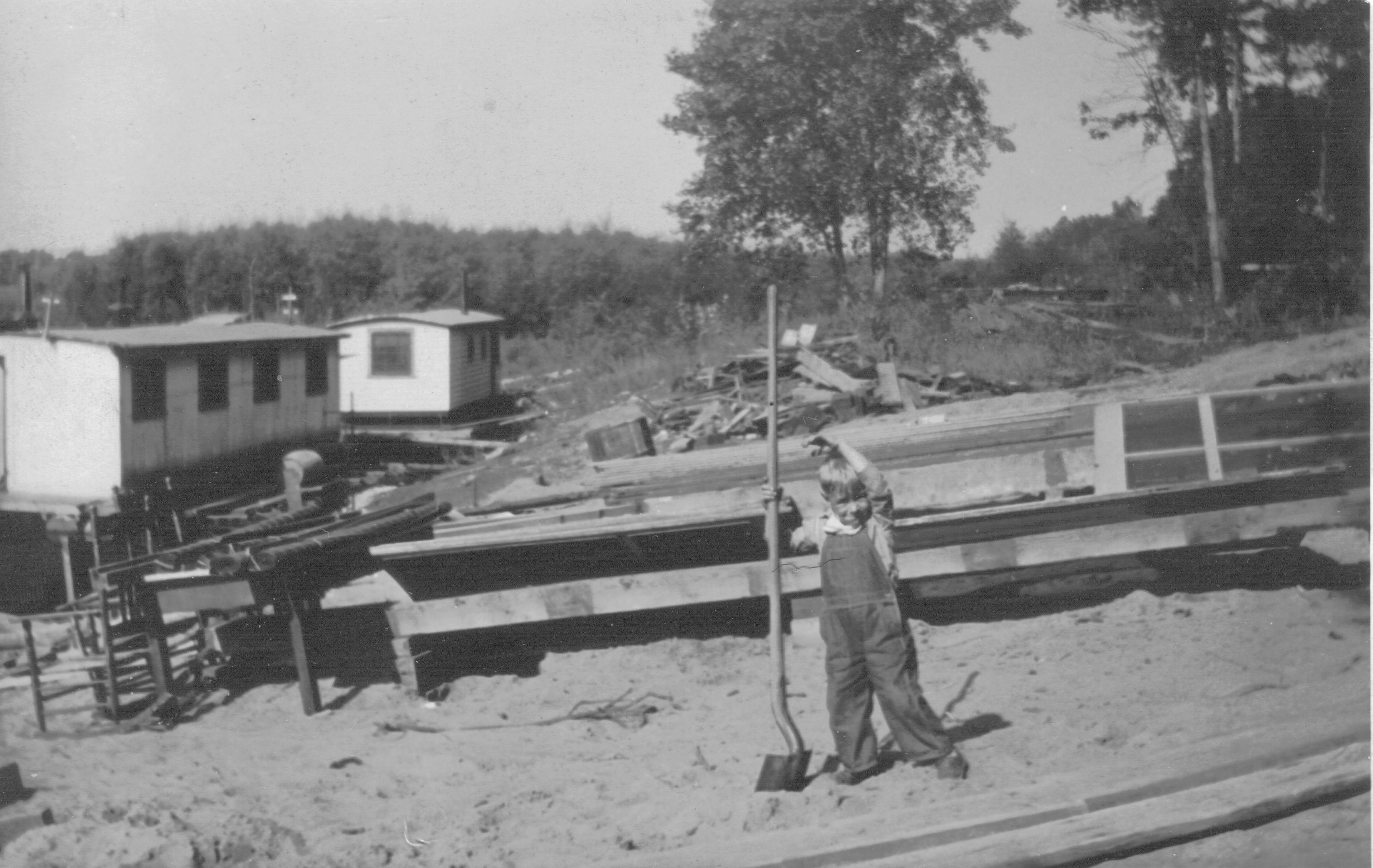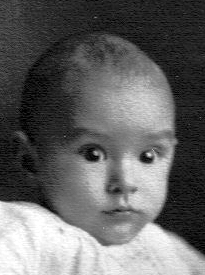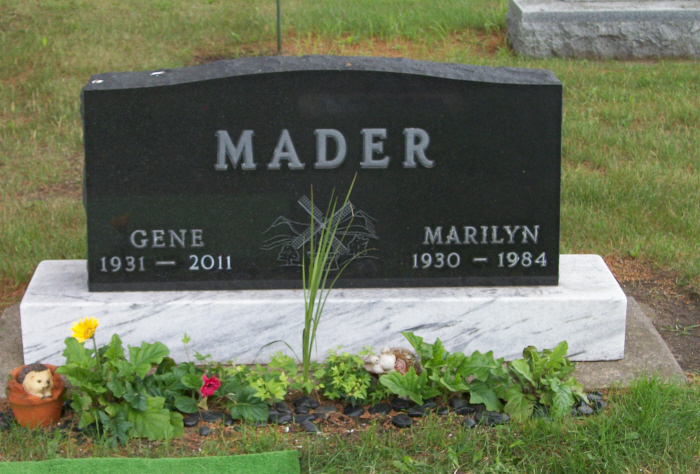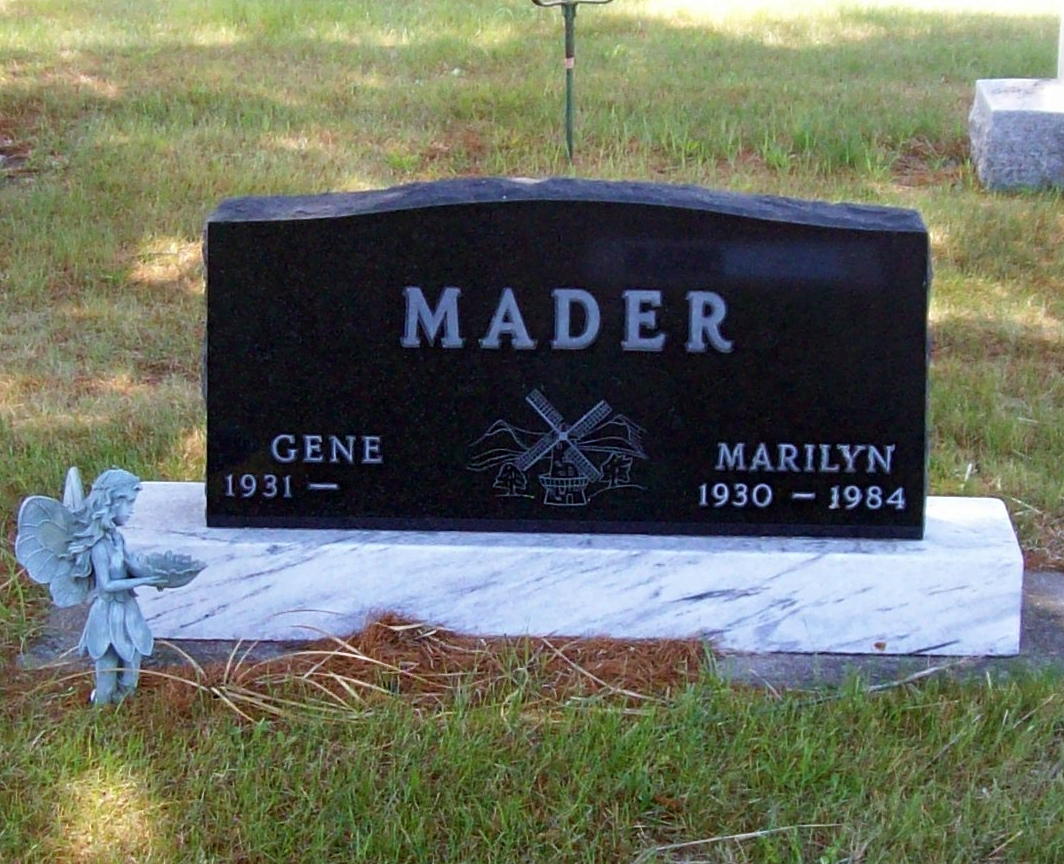About 1934 the family moved into a "houseboat" supplied by the government for otherwise homeless victims of The Great Depression. These houseboats looked like white shipping containers on water. These miserable floating hovels were lined up on the shore of the Mississippi River like train cars. My father's playground included a shovel twice as long as he was, a large pile of used lumber and all the sand he could shovel.
Sister Julaine arrived in 1935, and the last child, a daughter, arrived in 1938. By 1938 the family's fortunes had improved, and they had settled in the Milwaukee, Wisconsin area. My Grandfather, Clarence began work in the heating and sheet metal industry, eventually owning his own business.
Somewhere along the line, Grandpa began escaping his poverty-stricken life at the corner "gin-mill", as taverns were called. It was what Mader men had done for generations before him. Unfortunately, much of his income was spent on liquor, and Grandpa would come home in the evening drunk and abusive. His family paid the price for his anger. Grandma Freda was the primary focus of the abuse and was beaten regularly. Dad did everything he could to protect his mother.
Outwardly, the Mader Family was a normal one. My dad was a paperboy and participated in high school clubs and activities. He joined Co. K., 127th Infantry, 32nd Div., Wisconsin Student National Guard, and planned to join the Army after high school. A mere five months before graduation, Grandpa came home, fists flying. My dad decided this was going to be the last time. He went to his room, and slowly, methodically, loaded his squirrel rifle, intending to stop the abuse permanently. After a few moments of deliberation, though, he made the wise decision to unload his rifle.
Shortly afterward, dad left home, five months before graduating. In 1949, at the tender age of 17, he joined the Army. He took to military life like a duck to water, thriving on military life. He was deployed to Germany and served with Co. A., 16th Inf. Regt., Montieth Barracks, in Fuerth. By the time his enlistment was up, he'd climbed in the enlisted ranks from Pvt. to Sgt.(T).
He went home to Milwaukee and worked as a draftsman in the civilian world for two years, and in 1954 he entered Officers Candidates' School (OCS) at Ft. Benning, GA. He emerged, a Ranger.
In 1955 dad was stationed at Jump School, Ft. Campbell, KY. when he and a buddy sat down at a cafe in Clarksville, Tennessee. Their waitress was a beautiful California girl with sparkling brown eyes and an unruly mane of black hair. If there is such a thing as love at first sight, it struck that day. On 2 February, 1956, Gene and Lynn married. Shortly afterward dad was deployed to Germany, taking his lovely bride with him.
From 1956-1959, Lt. Mader was assigned to the 16th Infantry, 6th Army at Augsburg Station. His first daughter, Michelle "Mitch" was born there. After the family returned to the states, two more daughters arrived in rapid succession.
In 1962 Cpt. Mader volunteered for deployment to a country in Southeast Asia with an unfamiliar name. He was part of the MAAG {Military Assistance Advisory Group} in Vietnam. For the first three months he served as Staff Advisor, 1st Rgt, 1st Inf. Div., I Corps in Hue. He met and befriended Nguyen Van Thieu, future President of South Vietnam. Dad helped Nguyen polish his English. During his final nine months he served as BN Advisor, 1st Inf. Div., I Corps.
A couple of years before his death, I finally found the courage to ask the old Man about his service in Vietnam. His eyes lit up, and his lips curled into just a hint of a smile. He said: "I was 30 years old, I was fit, and I enjoyed the excitement". While he was assuredly being honest, the darkest of his experiences there were left unspoken. Those he took to his grave.
He told me that he served with two other American soldiers, Sgt. Williamson and SSG Brooks, embedded in a South Vietnamese battalion (of 300 men), "advising" them in the art of guerilla warfare. He served in Quang Ngai and at an outpost near Danang. I asked him if he'd ever been injured. Very seriously, he began this tale:
He and one of the NCOs were in his hootch (atop an outpost with defensive works), playing poker. {My father chuckles at this...} They heard incoming fire, and in my Father's excitement, he grabbed his rifle off the wall and charged out of the hootch, banging his right knee on the steel drum his buddy had been sitting on. The wound, although painful, required no treatment.
One of the things that helped my dad get through the horrors of his duty was his correspondence with a buddy. The day he first set foot on Vietnamese soil, he was accompanied by a stranger, Cpt. Paul Vegna, who was a pilot who had served in WWII and Korea, and was stationed in Japan. Cpt. Vegna flew recon and supply missions in Vietnam. His photo is on this memorial. Cpt. Vegna and Dad soon became fast friends...I suspect over a rum & cokes and a few beers at the Officers' Club in Hue. Dad and Paul corresponded in between Paul's missions, and during dad's up close and personal tour in the jungle.
Cpt. Vegna knew that war-related correspondence would have historical meaning, and kept the letters my father wrote to him. Paul's daughter Susan recently recognized my father's name on Find A Grave. She contacted me to see if the man who wrote those letters her father meticulously kept until his death was related to me! Neither man could have imagined that a generation later, their daughters would connect and share a common bond as 2nd-generation "Vietnam Buddies".
My father's letters to Cpt. Vegna reflect the reality that dad didn't speak of to me. Some were graphic, reflecting the moral repugnance he felt at watching the lengths to which South Vietnamese went to extract intelligence from the V.C.. He never spoke of these things to his family.
Unfortunately, my father never kept anything, and I doubt that Paul's letters to him will ever surface.
After 'Nam, we were stationed at Truax AFB, Madison, Wisconsin where Dad served as BN Advisor to Army National Guard members who were going to be deployed to Vietnam. After that assignment, Dad was deployed to the DMZ in South Korea. He was then assigned to Ft. Monroe, Virginia, his final duty station. He retired as a LT. Col. at age 40 in 1971.
After his retirement, he moved his family to tiny Buffalo City, Wisconsin, the land of his ancestors and childhood. He became the Chief of Police (and the only police officer!) in Buffalo City for a time. He also worked as an instructor at St. John's Military Academy near Milwaukee, his family still in Buffalo City. But he never really found his place in a non-military world. He was a soldier and a patriot, and civilian life was foreign to him.
In 1984, after a long, heartbreaking battle, my mother died of lung and brain cancer. Dad was lost. But in 1987 he remarried to a most wonderful lady, and spent the years between then and his death in Jacksonville, Florida, finding a peace he had never known.
Dad began smoking as a very young man, and tried to quit many times. Even mom's slow and painful death didn't stop his habit. Ironically, at age 77, he finally succeeded, and two years later got lung cancer, which spread to his brain. So began his own slow death, which broke the hearts of his loved ones, although he was excited about "the next adventure". He told me one day: "Mitch, when I look in the mirror, I don't see myself any more, I see a sick old man, fading away." He became a shadow. Finally, on 10 February 2011 the strong, courageous patriot was gone. The great tragedy was that he began his final descent the night before The Green Bay Packers won the Superbowl. He never got the news.
Foremost, my father was a Patriot and a soldier. Surprisingly, though, he was also a talented artist, photographer, and wordsmith. He taught his children about patriotism and love of country. He was a masterful storyteller. I remember him, back in the '60s, sitting on the ground with all of us neighborhood kids staring at him in rapt attention as he wove magical stories. Just as evening began to fall, he announced that by the time he counted to 10, each child should be home, sitting in the bathtub. He covered his eyes, and, by golly, I don't know if the kids were sitting in their tubs, but they were all gone, safely in their homes. I know my sisters and I were in the bathtub! That was back when all of our butts would fit in there together!
There are a million tales to tell about the man who did his best to be a good Soldier, Patriot, husband and father. He was humble about his service to his country. And he was a perfectionist who lived in complete denial that perfection is unattainable.
I read my Father's favorite poem as part of his eulogy:
SOLDIER
The stars wing down the western steep,
And soon the east will burn with day,
And we shall struggle up from sleep
And sling our packs and march away.
In this brief hour before the dawn
Has struck our bivouac with flame
I think of men whose brows have borne
The iron wreath of deadly fame.
I see the fatal phalanx creep,
Like death across the world and back,
With eyes that only strive to keep
Bucephalus' immortal track.
I see the legion wheel through Gaul,
The sword and flame on hearth and home,
And all the men who had to fall
That Caesar might be first in Rome.
I see the horde of Genghis Khan
Spread outward like the dawn of day
To trample golden Khorassan
And thunder over fair Cathay.
I see the grizzled grenadier,
The dark dragoon, the gay hussar,
Whose shoulders bore for many a year
Their little emperor's blazing star.
I see these things, still am I slave
When banners flaunt and bugles blow,
Content to fill a soldier's grave
For reasons I shall never know.
by Brig. Gen. C.T. Lanham, WWII
About 1934 the family moved into a "houseboat" supplied by the government for otherwise homeless victims of The Great Depression. These houseboats looked like white shipping containers on water. These miserable floating hovels were lined up on the shore of the Mississippi River like train cars. My father's playground included a shovel twice as long as he was, a large pile of used lumber and all the sand he could shovel.
Sister Julaine arrived in 1935, and the last child, a daughter, arrived in 1938. By 1938 the family's fortunes had improved, and they had settled in the Milwaukee, Wisconsin area. My Grandfather, Clarence began work in the heating and sheet metal industry, eventually owning his own business.
Somewhere along the line, Grandpa began escaping his poverty-stricken life at the corner "gin-mill", as taverns were called. It was what Mader men had done for generations before him. Unfortunately, much of his income was spent on liquor, and Grandpa would come home in the evening drunk and abusive. His family paid the price for his anger. Grandma Freda was the primary focus of the abuse and was beaten regularly. Dad did everything he could to protect his mother.
Outwardly, the Mader Family was a normal one. My dad was a paperboy and participated in high school clubs and activities. He joined Co. K., 127th Infantry, 32nd Div., Wisconsin Student National Guard, and planned to join the Army after high school. A mere five months before graduation, Grandpa came home, fists flying. My dad decided this was going to be the last time. He went to his room, and slowly, methodically, loaded his squirrel rifle, intending to stop the abuse permanently. After a few moments of deliberation, though, he made the wise decision to unload his rifle.
Shortly afterward, dad left home, five months before graduating. In 1949, at the tender age of 17, he joined the Army. He took to military life like a duck to water, thriving on military life. He was deployed to Germany and served with Co. A., 16th Inf. Regt., Montieth Barracks, in Fuerth. By the time his enlistment was up, he'd climbed in the enlisted ranks from Pvt. to Sgt.(T).
He went home to Milwaukee and worked as a draftsman in the civilian world for two years, and in 1954 he entered Officers Candidates' School (OCS) at Ft. Benning, GA. He emerged, a Ranger.
In 1955 dad was stationed at Jump School, Ft. Campbell, KY. when he and a buddy sat down at a cafe in Clarksville, Tennessee. Their waitress was a beautiful California girl with sparkling brown eyes and an unruly mane of black hair. If there is such a thing as love at first sight, it struck that day. On 2 February, 1956, Gene and Lynn married. Shortly afterward dad was deployed to Germany, taking his lovely bride with him.
From 1956-1959, Lt. Mader was assigned to the 16th Infantry, 6th Army at Augsburg Station. His first daughter, Michelle "Mitch" was born there. After the family returned to the states, two more daughters arrived in rapid succession.
In 1962 Cpt. Mader volunteered for deployment to a country in Southeast Asia with an unfamiliar name. He was part of the MAAG {Military Assistance Advisory Group} in Vietnam. For the first three months he served as Staff Advisor, 1st Rgt, 1st Inf. Div., I Corps in Hue. He met and befriended Nguyen Van Thieu, future President of South Vietnam. Dad helped Nguyen polish his English. During his final nine months he served as BN Advisor, 1st Inf. Div., I Corps.
A couple of years before his death, I finally found the courage to ask the old Man about his service in Vietnam. His eyes lit up, and his lips curled into just a hint of a smile. He said: "I was 30 years old, I was fit, and I enjoyed the excitement". While he was assuredly being honest, the darkest of his experiences there were left unspoken. Those he took to his grave.
He told me that he served with two other American soldiers, Sgt. Williamson and SSG Brooks, embedded in a South Vietnamese battalion (of 300 men), "advising" them in the art of guerilla warfare. He served in Quang Ngai and at an outpost near Danang. I asked him if he'd ever been injured. Very seriously, he began this tale:
He and one of the NCOs were in his hootch (atop an outpost with defensive works), playing poker. {My father chuckles at this...} They heard incoming fire, and in my Father's excitement, he grabbed his rifle off the wall and charged out of the hootch, banging his right knee on the steel drum his buddy had been sitting on. The wound, although painful, required no treatment.
One of the things that helped my dad get through the horrors of his duty was his correspondence with a buddy. The day he first set foot on Vietnamese soil, he was accompanied by a stranger, Cpt. Paul Vegna, who was a pilot who had served in WWII and Korea, and was stationed in Japan. Cpt. Vegna flew recon and supply missions in Vietnam. His photo is on this memorial. Cpt. Vegna and Dad soon became fast friends...I suspect over a rum & cokes and a few beers at the Officers' Club in Hue. Dad and Paul corresponded in between Paul's missions, and during dad's up close and personal tour in the jungle.
Cpt. Vegna knew that war-related correspondence would have historical meaning, and kept the letters my father wrote to him. Paul's daughter Susan recently recognized my father's name on Find A Grave. She contacted me to see if the man who wrote those letters her father meticulously kept until his death was related to me! Neither man could have imagined that a generation later, their daughters would connect and share a common bond as 2nd-generation "Vietnam Buddies".
My father's letters to Cpt. Vegna reflect the reality that dad didn't speak of to me. Some were graphic, reflecting the moral repugnance he felt at watching the lengths to which South Vietnamese went to extract intelligence from the V.C.. He never spoke of these things to his family.
Unfortunately, my father never kept anything, and I doubt that Paul's letters to him will ever surface.
After 'Nam, we were stationed at Truax AFB, Madison, Wisconsin where Dad served as BN Advisor to Army National Guard members who were going to be deployed to Vietnam. After that assignment, Dad was deployed to the DMZ in South Korea. He was then assigned to Ft. Monroe, Virginia, his final duty station. He retired as a LT. Col. at age 40 in 1971.
After his retirement, he moved his family to tiny Buffalo City, Wisconsin, the land of his ancestors and childhood. He became the Chief of Police (and the only police officer!) in Buffalo City for a time. He also worked as an instructor at St. John's Military Academy near Milwaukee, his family still in Buffalo City. But he never really found his place in a non-military world. He was a soldier and a patriot, and civilian life was foreign to him.
In 1984, after a long, heartbreaking battle, my mother died of lung and brain cancer. Dad was lost. But in 1987 he remarried to a most wonderful lady, and spent the years between then and his death in Jacksonville, Florida, finding a peace he had never known.
Dad began smoking as a very young man, and tried to quit many times. Even mom's slow and painful death didn't stop his habit. Ironically, at age 77, he finally succeeded, and two years later got lung cancer, which spread to his brain. So began his own slow death, which broke the hearts of his loved ones, although he was excited about "the next adventure". He told me one day: "Mitch, when I look in the mirror, I don't see myself any more, I see a sick old man, fading away." He became a shadow. Finally, on 10 February 2011 the strong, courageous patriot was gone. The great tragedy was that he began his final descent the night before The Green Bay Packers won the Superbowl. He never got the news.
Foremost, my father was a Patriot and a soldier. Surprisingly, though, he was also a talented artist, photographer, and wordsmith. He taught his children about patriotism and love of country. He was a masterful storyteller. I remember him, back in the '60s, sitting on the ground with all of us neighborhood kids staring at him in rapt attention as he wove magical stories. Just as evening began to fall, he announced that by the time he counted to 10, each child should be home, sitting in the bathtub. He covered his eyes, and, by golly, I don't know if the kids were sitting in their tubs, but they were all gone, safely in their homes. I know my sisters and I were in the bathtub! That was back when all of our butts would fit in there together!
There are a million tales to tell about the man who did his best to be a good Soldier, Patriot, husband and father. He was humble about his service to his country. And he was a perfectionist who lived in complete denial that perfection is unattainable.
I read my Father's favorite poem as part of his eulogy:
SOLDIER
The stars wing down the western steep,
And soon the east will burn with day,
And we shall struggle up from sleep
And sling our packs and march away.
In this brief hour before the dawn
Has struck our bivouac with flame
I think of men whose brows have borne
The iron wreath of deadly fame.
I see the fatal phalanx creep,
Like death across the world and back,
With eyes that only strive to keep
Bucephalus' immortal track.
I see the legion wheel through Gaul,
The sword and flame on hearth and home,
And all the men who had to fall
That Caesar might be first in Rome.
I see the horde of Genghis Khan
Spread outward like the dawn of day
To trample golden Khorassan
And thunder over fair Cathay.
I see the grizzled grenadier,
The dark dragoon, the gay hussar,
Whose shoulders bore for many a year
Their little emperor's blazing star.
I see these things, still am I slave
When banners flaunt and bugles blow,
Content to fill a soldier's grave
For reasons I shall never know.
by Brig. Gen. C.T. Lanham, WWII
Inscription
The Spanish Windmill on the marker signifies LTC Mader's identification with Don Quixote, who fought battles with windmills, and who believed in "The Impossible Dream".
Gravesite Details
Thanx to Susan for her photo of her dad, Lt. Paul Vegna.
